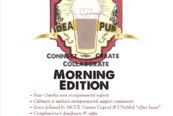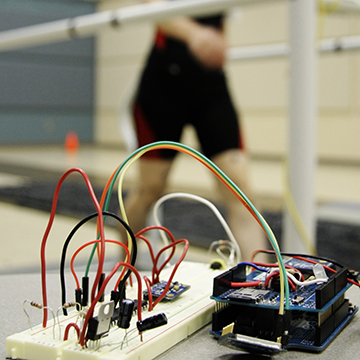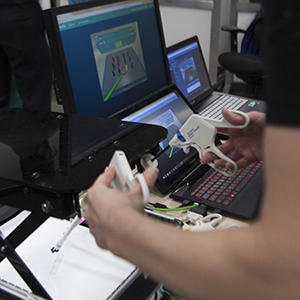OMAHA, Neb. (Nov. 19, 2018)—Walker Arce, an electrical engineering student in the University of Nebraska at Omaha’s biomechanics program, was selected as the University of Nebraska’s top choice to deliver his business plan to a regional entrepreneurial conference on Jan. 25, 2019.
The chance to pitch his proposal to a room full of entrepreneurs, startup companies, and investor groups was the top prize of a business plan competition throughout the University of Nebraska system. Judges selected Arce’s plan among four finalists.

Walker Arce
Arce will join two other “Pipeline Spotlight Entrepreneurs” who will pitch their ideas during Pipeline’s annual awards celebration, The Innovators, on Jan. 25, 2019, in Omaha. Other Spotlight Entrepreneurs will represent the University of Kansas and Washington University in St. Louis.
Pipeline is an entrepreneurial mentoring program in the Midwest that offers a handful of highly selective entrepreneurial fellowships each year. Fellows in the Pipeline program received hands-on training from successful entrepreneurs and mentors from around the region and across the nation. The program helps fellows refine their business plans, raise money and dramatically improve their chances for ultimate success.
The three students selected as Pipeline Spotlight Entrepreneurs will receive similar guidance, with regional and national mentors helping the entrepreneurs refine their company pitches. The final test will come during The Innovators. There, the student entrepreneurs will get the rare opportunity to propose their ideas to a room full of potential investors and partners.
Arce, the UNO biomechanics student, will present his startup company, M3 Robotics, which hopes to make robotic design and innovation more accessible to people everywhere. Arce’s plan involves creating a mail-order discovery box subscription service that teaches and inspires youth to build and code robotics.
Customers would initially receive a base package of simple robotics tools and coding instructions. Then, as the subscribers increase their knowledge and skills, the package will increase in corresponding complexity. Eventually the customer will have built some kind of robotic device, hopefully one that solves a real problem that could benefit others.











